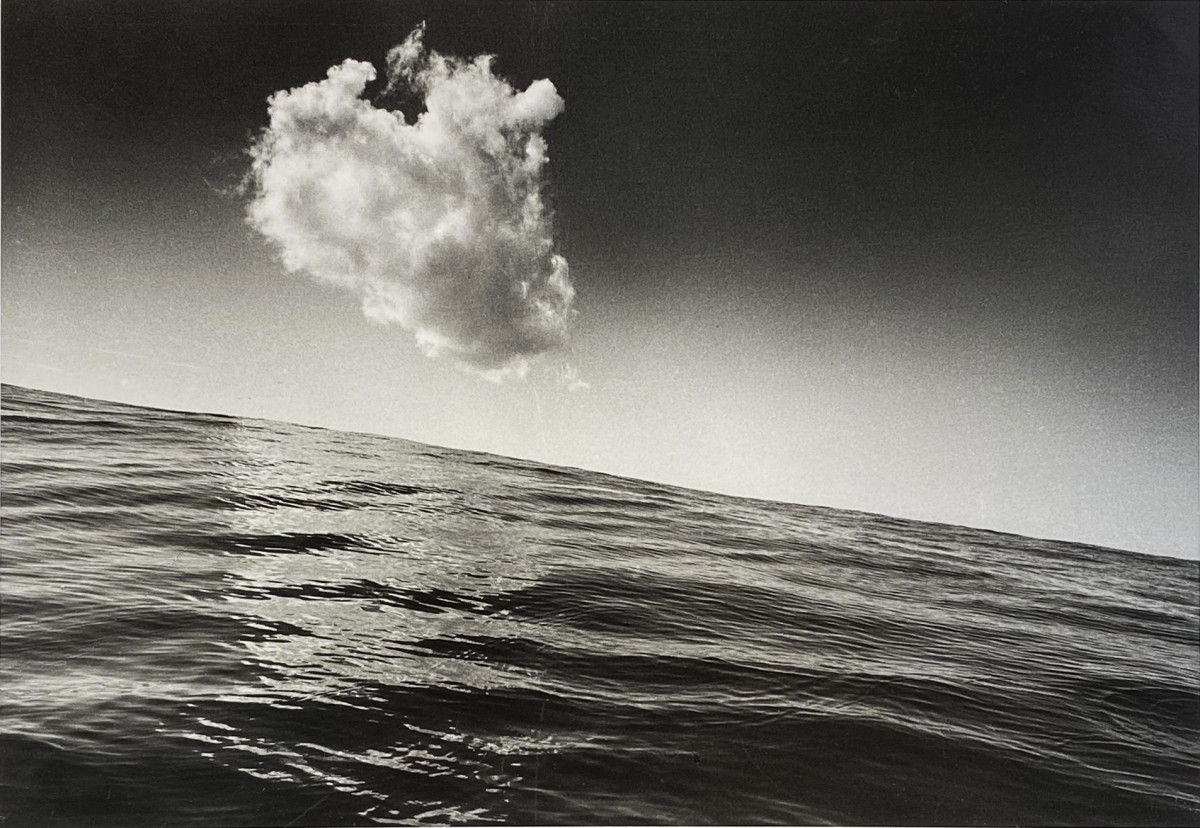Tomatsu Shomei 東松照明
One of Japan’s leading figures in photography, Shomei Tomatsu (1930-2012) dealt with such subjects as US military bases, Nagasaki after bombing, and Okinawa – all present critiques of social issue in postwar Japan. Major solo exhibitions include “Sakura and Plastics” at the Metropolitan Museum of Art (New York,1992) “Shomei Tomatsu: Skin of the Nation” at the San Francisco Museum of Modern Art (San Francisco, 2004), “Tokyo Mandala” at the Tokyo Metropolitan Museum of Photography (Tokyo, 2007), “The Chiseling of Time” at the Nagasaki Prefectural Art Museum (Nagasaki, Japan, 2010), “Tomatsu Shomei: Photographer” at the Nagoya City Art Museum (Nagoya, 2011), “Shomei Tomatsu: Island Life” at the Art Institute of Chicago (Chicago, 2013), “Shomei Tomatsu” at the Fundación MAPFRE Casa Garriga Nogués Exhibition Hall (Barcelona, 2018), and major group exhibitions include “Conflict, Time, Photography” at Tate Modern (London,2014), “For a New World to Come: Experiments in Japanese Art and Photography, 1968-1979” at The Museum of Fine Arts (Houston, 2015). Currently, you can see his works at “PROVOKE BETWEEN PROTEST AND PERFORMANCE – PHOTOGRAPHY IN JAPAN” in Albertina (Vienna,2016).
Featured Works
Tomatsu made his first trip to Okinawa in 1969, as the final destination in his national tour of the US military bases to capture the US occupation and Americanization. Tomatsu described Okinawa that “It’s not a US military base in Okinawa; it’s Okinawa in a US military base.” Contrary to the vast area of bases, he discovered that the areas away from the bases remained as rural with its own indigenous culture and he was fascinated by areas that refused Americanization. Hateruma Island is the southernmost inhabited island of Japan.

Tomatsu Shomei, Hateruma Island, 1971(printed ’82)
Gelatin silver print, image size 20.5 x 29.7 cm, paper size 27.6 x 34.6cm

Tomatsu Shomei, Hateruma Island, 1971(printed ’92)
Gelatin silver print, image size 19.7 x 29.9 cm, paper size 27.6 x 35.4cm
Chewing Gum and Chocolate
If the American Occupation meant Japan finding itself examined through the eyes of the stationed troops, it also meant the nation’s gradual Americanization. Tomatsu’s series Chewing Gum and Chocolate, taken over a period of twenty years travelling around US military base towns in Japan, is a look at this two-sided reality, much like two mirrors set up facing one another. These images not only provide a depiction of the foreign culture that came into Japan after the war, but like a Coca-Cola sign which leaves its mark even after the paint has peeled off, it also symbolizes the Japanese post-war philosophy which still endures to this day.

Tomatsu Shomei, Yokosuka, 1958(printed ’85)
Gelatin silver print, image size 26.8 x 36.9 cm, paper size 37.3 x 45.7cm

Tomatsu Shomei, Kanagawa Yokosuka 1966(printed ’78),
Gelatin silver print, image size 28.9 x 40.4 cm, paper size 40.3 x 51cm
Nagasaki

Tomatsu Shomei, Bottle Melted and Deformed by Atomic Bomb Heat, Radiation, and Fire, Nagasaki, 1961(printed ’98)
Gelatin silver print, image size 20.8 x 20.7 cm, paper size 35 x 28 m
Ise Bay Typhoon

Tomatsu Shomei, Ise Bay Typhoon, Nagoya 1959(printed ’91),
Gelatin silver print, image size 34.5 x 32.8 cm, paper size 50.6 x 40.3cm
Asphalt

Tomatsu Shomei, Asphalt, Tokyo 1960(printed ’92)
Gelatin silver print, image size 33.6 x 30.2 cm, paper size 50 x 39.7 cm
Shinjuku
Around 1970 was the period when existing values went through a major transformation and young people shared a desire to effect change. The feeling was that the period of Japan’s rapid modernization was coming to an end and that Shinjuku was the symbol of that chaotic time. After Tomatsu graduated from a university in Nagoya, he spent most of his time in Shinjuku, vigorously seeking out incidents to document. As a photographer, he lived through one of the most passionate periods in Japanese history. His works document a time when the nation was full of energy. Tomatsu also collaborated with others beyond his chosen field. He worked with other artists,architects, and avant-garde dancers.

Tomatsu Shomei, Asphalt, Tokyo 1960(printed ’92)
Gelatin silver print, image size 33.6 x 30.2 cm, paper size 50 x 39.7 cm
Alibi

Tomatsu Shomei, An Alibi2, Tokyo, 1971(printed ’80)
Gelatin silver print, image size 29.8 x 20.0cm, paper size 34. x 25.5 cm
